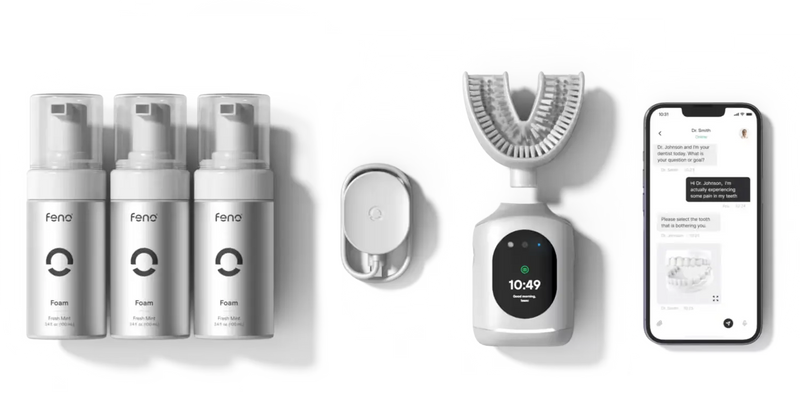
The Science of Nighttime Oral Care: Why Evening Dental Hygiene Is Critical for Health
Essential Takeaways
- Nighttime saliva production drops significantly, leaving teeth vulnerable
- Evening oral care is more critical than morning routines
- Proper nighttime dental hygiene can prevent long-term oral health issues
- Scientific evidence supports specific evening oral care protocols
According to Stanford neuroscientist Dr. Andrew Huberman, your nighttime oral care routine could be the most crucial factor in maintaining dental health - even more important than your morning routine. This evidence-based guide explores the fascinating science behind this discovery and provides actionable insights for better oral health.
Understanding Saliva: Your Mouth's Natural Defense System
Saliva is far more than just "spit"—it's a sophisticated biological fluid that plays a vital role in oral health. As Dr. Huberman explains, saliva "contains all sorts of important things that allow you to rebuild the strength of your teeth." Research shows that saliva contains:
- Calcium and phosphate ions for tooth remineralization
- Antimicrobial peptides that fight harmful bacteria
- Buffering compounds that maintain optimal pH levels
- Digestive enzymes that begin food breakdown
Why Night Makes Your Mouth Vulnerable
Research from the Journal of Dental Research reveals that during sleep, our oral environment undergoes significant changes:
- Saliva production decreases by up to 90%
- Natural cleansing mechanisms become inactive
- Bacteria have 6-8 uninterrupted hours to multiply
"In the middle of the night, you're not ingesting any food or fluids, presumably, but your saliva production is dramatically reduced," Huberman notes. This creates what dental researchers call a "perfect storm" for bacterial growth and acid production.
The pH Balance: A Critical Factor in Dental Health
During this nocturnal period, there's what Huberman describes as "a constant battle between acidity and alkalinity." Without saliva's buffering effects, any food particles remaining in the mouth can feed bacteria, leading to sustained acid production that can damage tooth enamel.
Evidence-Based Best Practices for Nighttime Oral Care
Recent dental research supports specific approaches to evening oral hygiene:
- Use soft-bristled brushes
- Choose alcohol-free antimicrobial rinses
- Focus on interdental cleaning before bed
- Wait 30 minutes after eating before brushing
This understanding of nighttime oral vulnerability and the importance of appropriate evening care protocols represents a significant shift in how we should approach daily oral hygiene. The focus should be on protecting our teeth during their most vulnerable period—the extended timeframe when our natural defenses are at their lowest.
*This blog is not an endorsement or affiliation with the Huberman Lab podcast. The content is for informational purposes only.
References:
- Huberman Lab Podcast: How to Improve Oral Health & Its Critical Role in Brain & Body Health
- NIH - The rôle of saliva in maintaining oral health and as an aid to diagnosis
- NIH - Antimicrobial function of human saliva--how important is it for oral health?
- The Journal of the American Dental Association - The Organic Compounds and Enzymes of Human Saliva
- Sleep Medicine Reviews - The significance of saliva during sleep and the relevance of oromotor movements
- PubMed - Awareness about the significance of acid–base balance of saliva in maintaining oral health
- DY Patil Dental College Blog - Benefits of Brushing Teeth at Night.
- Nature - Not brushing teeth at night may increase the risk of cardiovascular disease.
- Times of India - How nighttime oral hygiene is an effective self-care ritual.
- ResearchGate - Awareness of night brushing and its importance in oral health in parents and among their children.
-
Journal Articles on Oral Health - Studies linking nighttime hygiene with overall health outcomes.

Feno Founders Edition Bundle
Advanced Oral Health in 20 Seconds with the Feno Smartbrush™
Get Yours Now!






